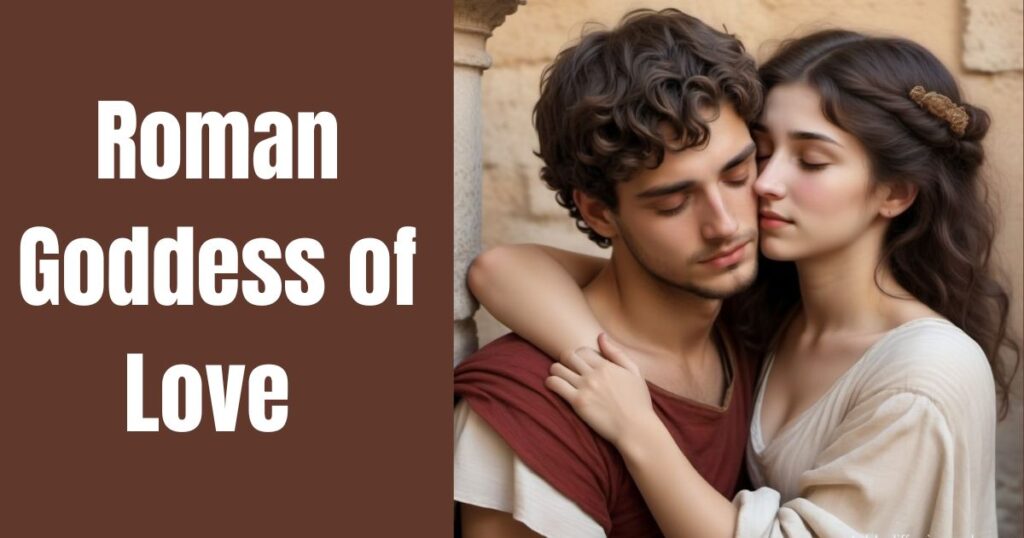Diving into the world of New York Times Mini Crossword puzzles can feel like stepping into a realm where ancient mythology meets modern wit. When you encounter that familiar clue about the Roman Goddess of Love, you’re not just looking at another crossword answer – you’re connecting with centuries of cultural history. Let’s explore why Venus is such a beloved fixture in the puzzle world.
Understanding Venus in Roman Mythology

The legacy of Venus in Roman mythology runs deeper than most crossword enthusiasts realize. While she’s primarily known as the goddess of beauty and fertility, her influence extended far beyond matters of the heart. Adapted from the Greek Goddess Aphrodite, Venus evolved into a uniquely Roman deity who symbolized not just love, but also victory, prosperity, and the very foundation of Roman civilization.
In Roman culture, Venus held a special place as the divine ancestor of the Roman people through her son Aeneas. This connection made her more than just a beautiful goddess she was a political and cultural powerhouse. Roman art and Roman literature consistently portrayed her as the epitome of grace and power, creating imagery that would influence artists for millennia to come.
Historical Context in Crosswords
The journey of Venus from ancient deity to crossword staple is a fascinating one. When the New York Times Mini Crossword first introduced mythology-based clues, they tapped into a rich vein of cultural knowledge that continues to engage solvers today. The inclusion of classical mythology in crosswords serves both educational and entertainment purposes, making these puzzles a unique blend of learning and fun.
Crossword puzzles mythology clues have evolved over time, becoming more accessible while maintaining their intellectual appeal. Venus, with her straightforward name and widespread recognition, became a natural choice for puzzle constructors looking to balance challenge with solvability.
NYT Mini Crossword Features
The genius of the NYT Mini Crossword daily puzzles lies in their ability to make complex topics approachable. When it comes to mythology in NYT crosswords, the Mini format excels at presenting classical references in a way that even newcomers can appreciate. The compact nature of the Mini forces constructors to be clever yet clear with their clues.
Common Variations of the Venus Clue
Puzzle creators have developed numerous ways to reference our favorite Roman beauty goddess. Beyond the straightforward “Roman goddess of love,” you might encounter references to the Venus planet, allusions to her role as a deity of romance, or clever wordplay involving her various attributes. Each variation adds a new layer to the solving experience while reinforcing the core knowledge needed for success.
Popular Related Clues
The world of crossword mythology extends beyond Venus herself. Solvers often encounter her divine family members, including Mars and Jupiter. These ancient Roman deities form a network of interconnected clues that help build a broader understanding of classical mythology. The relationship between Venus and Mars mythology is particularly popular in puzzles, offering constructors numerous opportunities for creative cluing.
Common Companion Clues
The presence of Venus in a puzzle often signals the appearance of other classical references. From her lovers to her rivals, the pantheon of Roman and Greek mythology provides rich material for constructors. Understanding these connections can transform challenging puzzles into enjoyable explorations of ancient culture.
Solving Strategies
Success with crossword puzzle solving strategies often comes down to pattern recognition and cultural awareness. When approaching mythology-based clues, consider the context of the puzzle and the typical ways constructors reference classical figures. The key is to build a mental database of common references while staying alert to creative new cluing approaches.
Read Also: Rena Monrovia When You Transport Something By Car
Expert Tips
Experienced solvers know that mastering Venus mythology reference clues requires more than memorization. It’s about understanding the logic behind the clues and recognizing the patterns that emerge across different puzzles. Start by familiarizing yourself with Venus’s various aspects and attributes, then watch how these elements appear in different guises throughout different puzzles.
Cultural Impact

The influence of Venus in Roman art extends far beyond ancient times, making her an ideal crossword subject. From the famous Venus de Milo statue to countless Renaissance masterpieces, her image has become deeply embedded in Western culture. This cultural permanence ensures her continued relevance in modern puzzles.
Beyond the Mini
While the Mini crossword keeps things relatively straightforward, the regular NYT crossword offers more complex explorations of Venus cultural significance. These advanced puzzles might reference obscure myths, artistic depictions, or astronomical connections, providing a deeper challenge for experienced solvers.
FAQs
Is there a Roman god of love?
While Venus is the primary Roman Goddess of Love, Cupid (Amor in Latin) is the male god of love in Roman mythology. He’s Venus’s son and is often depicted as a winged boy with a bow and arrow, responsible for making people fall in love.
Who is the real goddess of love?
The concept of a love goddess appears in many cultures, but in Roman mythology, Venus is considered the true goddess of love. She evolved from the Greek Aphrodite and became one of the most important deities in Roman culture.
What is the Roman goddess of love and beauty name?
Venus is the Roman Goddess of Love and beauty. She was also associated with fertility, prosperity, and victory in Roman mythology, making her one of the most influential Roman deities.
Who is the goddess of love Greek Roman?
Aphrodite is the Greek goddess of love, while Venus is her Roman counterpart. Though they share many attributes and stories, Venus developed her own unique characteristics in Roman culture and Roman literature.
How often does “Venus” appear in NYT Mini Crosswords?
Venus appears in the New York Times Mini Crossword approximately once every few months. The frequency makes it one of the more common mythology-based answers in the puzzle.
Are there alternative answers for “Roman goddess of love”?
In the NYT Crossword Guide, VENUS is the only accepted answer for “Roman goddess of love.” While other deities might be associated with love, Venus is the definitive answer for this specific clue.
Why is Venus important in crossword puzzles?
Venus is perfect for crossword puzzles because her name is short, contains common letters, and is widely recognized. Her cultural significance and connection to both classical mythology and the Venus planet make her an ideal crossword answer.
How can I remember this answer for future puzzles?
Connect Venus to familiar references like the Venus de Milo statue, the Venus planet, or famous artwork. The name’s connection to women’s beauty and love makes it memorable for solving crossword themes.
Are there similar mythology-based clues I should know?
Yes, familiarize yourself with other Roman deities like Mars, Jupiter, and Apollo. Also know Greek counterparts in Greek mythology as these frequently appear in NYT Mini Crossword daily puzzles.
Conclusion
Whether you’re tackling the Mini or venturing into more challenging territory, understanding the role of Venus in crosswords opens up new worlds of puzzle-solving enjoyment. Remember, each time you successfully fill in those five letters, you’re participating in a tradition that connects ancient mythology to modern entertainment. Keep practicing, stay curious about the classical world, and watch your solving skills soar to divine heights.
This comprehensive guide to Venus NYT Mini Crossword clues should help you approach mythology-based puzzles with greater confidence and appreciation. Happy solving, and may Venus smile upon your crossword adventures.









